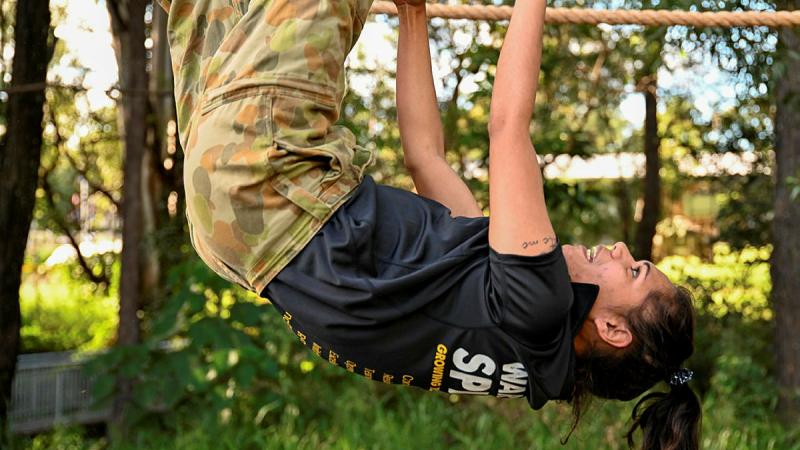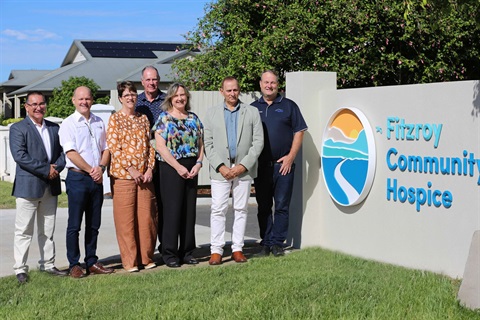Today, on International Neonatal Screening Day, the Albanese Government is delivering on our commitment to end the postcode lottery, by investing $39 million to achieve national consistency and expand the program.
Prior to the 2022 federal election there was no clear pathway to screening between states. It had previously taken anywhere from 5 to 14 years for new conditions to be included for screening and there was no guarantee that what was screened in one state would also be screened in other states.
Thanks to the Albanese Government, for the first time in 60 years, there is an agreed national list of current newborn bloodspot screening conditions, specific funding to achieve consistency across Australia, and a streamlined pathway to consider more conditions for screening.
According to international best practice, newborn bloodspot screening programs are made up of two types of conditions: ‘target’ and ‘non-target’ conditions.
Target conditions provide the most significant benefit to families because screening is more reliable, detectable and accurate, and pathways for treatment exist.
Non-target conditions can be more difficult to detect because the findings are incidental, treatments or interventions are not necessarily available, and testing is less reliable.
Because of the work of the Albanese Government, Australia is on the pathway to screening 50 conditions including all target conditions that are recognised as world’s best practice – including in California.
Among the conditions that are on the pathway to screening are Pompe, Batten’s disease, Sanfilippo Syndrome and GAMT deficiency.
To continue world’s best practice and to continue expanding Australia’s screening towards the 80 benchmark – which includes both non-target conditions and non-bloodspot tests – a transparent and consistent process is also being mapped out to identify and consider conditions.
This process will allow clinicians, patient groups and other community members to submit new conditions for consideration to progress along the streamlined pathway.
From the point that a condition is identified, the streamlined pathway should clinically assess and deliver a screening decision within two years, with implementation to follow.
The Australian Government has agreed with states and territories that maintaining our high quality, trusted programs mean screening services must go hand-in-hand with support and clinical care services. To support this, $25.3 million of the funding is being provided to states and territories to support the delivery of screening.
A diagnosis without support does a disservice to families. By working together, federal, state and territory governments will ensure a nationally consistent approach to screening, so that no matter which hospital a child is born in, they will be screened and supported for the same rare conditions.
Quotes attributable to Minister Butler:
“The Albanese Government is delivering on our election commitment to put an end to the newborn screening postcode lottery by making sure every baby born in Australia has access to the same screening program.
“This historic approach to newborn screening with state and territory governments, will deliver a nationally consistent approach to newborn bloodspot screening.
“Newborn screening will not only save lives but will deliver better outcomes through early intervention.
“We want parents to be confident that no matter which hospital their child is born, their baby will be appropriately and consistently screened for rare conditions, that the screening result is accurate and that they will be connected to support and services wherever they live.
“All governments are committed to deliver stronger governance, so when conditions are recommended for inclusion, families can be assured they will be implemented.”
Quotes attributable to Nicole Millis, CEO, Rare Voices Australia:
“This is a milestone moment for children and families with rare diseases in Australia.
“Screening is life-changing and can be life-saving.
“A nationally consistent screening program and a clear pathway for conditions to be included, will support early diagnosis of a number of rare diseases. Early diagnosis is critical to Australian parents and families as it enables the best immediate treatment and care.
“National consistency means the end of the postcode lottery in newborn bloodspot screening.
“The increased sustainability, equity and transparency of the NBS Program across Australia means that families will be able to access both screening and vital specialist care.”
Quotes attributable to Megan Maack, CEO, Childhood Dementia Initiative:
“It is a tragedy for any child to miss out on an effective treatment because they were diagnosed too late.
“As a mother who has experienced this tragedy first-hand and as CEO of Childhood Dementia Initiative, I welcome a faster and more transparent process that has the potential to improve diagnosis and treatment of the childhood dementia disorders for generations to come.
“We keenly await the outcome of the childhood dementia disorders currently under consideration for inclusion, which, if implemented, will see babies gain access to life saving treatment.”








